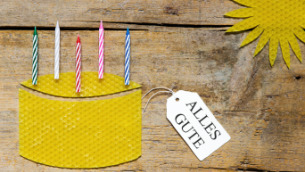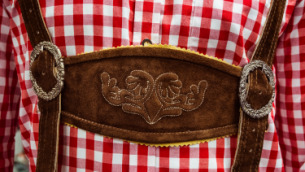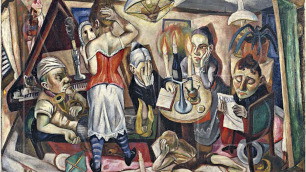Lesson 25: The Adjective Endings in Akkusativ und Dativ
25.1 What is the Deklination im Akkusativ?
You'll likely remember that the Akkusativ doesn't vary much from the Nominativ, only in the der grouping.25.1.1 Definite Article
Here is the first time you see the der -en ending.den heißen Kaffee, die kluge Krähe, das neue Buch, die interessanten Nachrichten
25.1.2 Indefinite Article
Here, the der adjective ending is also -en.einen heißen Kaffee, eine kluge Krähe, ein neues Buch, - interessante Nachrichten
25.1.3 Negative Article
The der grouping -en ending continues the pattern in the Akkusativ.keinen heißen Kaffe

























